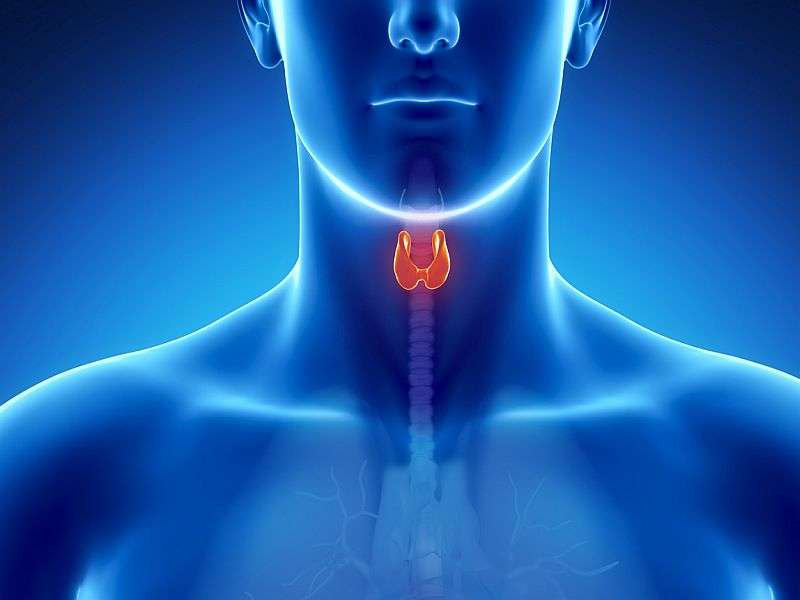Patient age linked to survival in papillary thyroid cancer

(HealthDay)—For patients with papillary thyroid cancer (PTC), patient age is associated with death in a linear fashion, with no apparent age cut point demarcating survival difference, according to a study published online Oct. 28 in the Journal of Clinical Oncology.
Mohamed Abdelgadir Adam, M.D., from the Duke University Medical Center in Durham, N.C., and colleagues identified patients with PTC from the Surveillance, Epidemiology, and End Results database from 1998 to 2012. Using several flexible smoothing approaches, they examined the correlation between age and cancer-specific survival (CSS).
Data were included for 31,802 patients with PTC (median age, 45 years). The researchers found that 10-year CSS was 99.8 percent for ages 2 to 19 years; 99.9 percent for ages 20 to 29 years; 99.8 percent for ages 30 to 39 years; 99.5 percent for ages 40 to 49 years; 98.1 percent for ages 50 to 59 years; 94.8 percent for ages 60 to 69 years; 91.5 percent for ages 70 to 79 years; 79.2 percent for ages 80 to 89 years; and 73.9 percent for ages 90 years and older. Increasing age correlated with increased disease-related mortality in a dose-dependent manner after adjustment for patient demographics and clinicopathologic characteristics, without an apparent cut point.
"These results challenge the appropriateness of a patient age cut point in current staging systems for PTC and argue for considering a revision in how we anticipate prognosis for patients with PTC," the authors write.
One author disclosed financial ties to the pharmaceutical industry.
More information: Full Text
Copyright © 2016 HealthDay. All rights reserved.


















